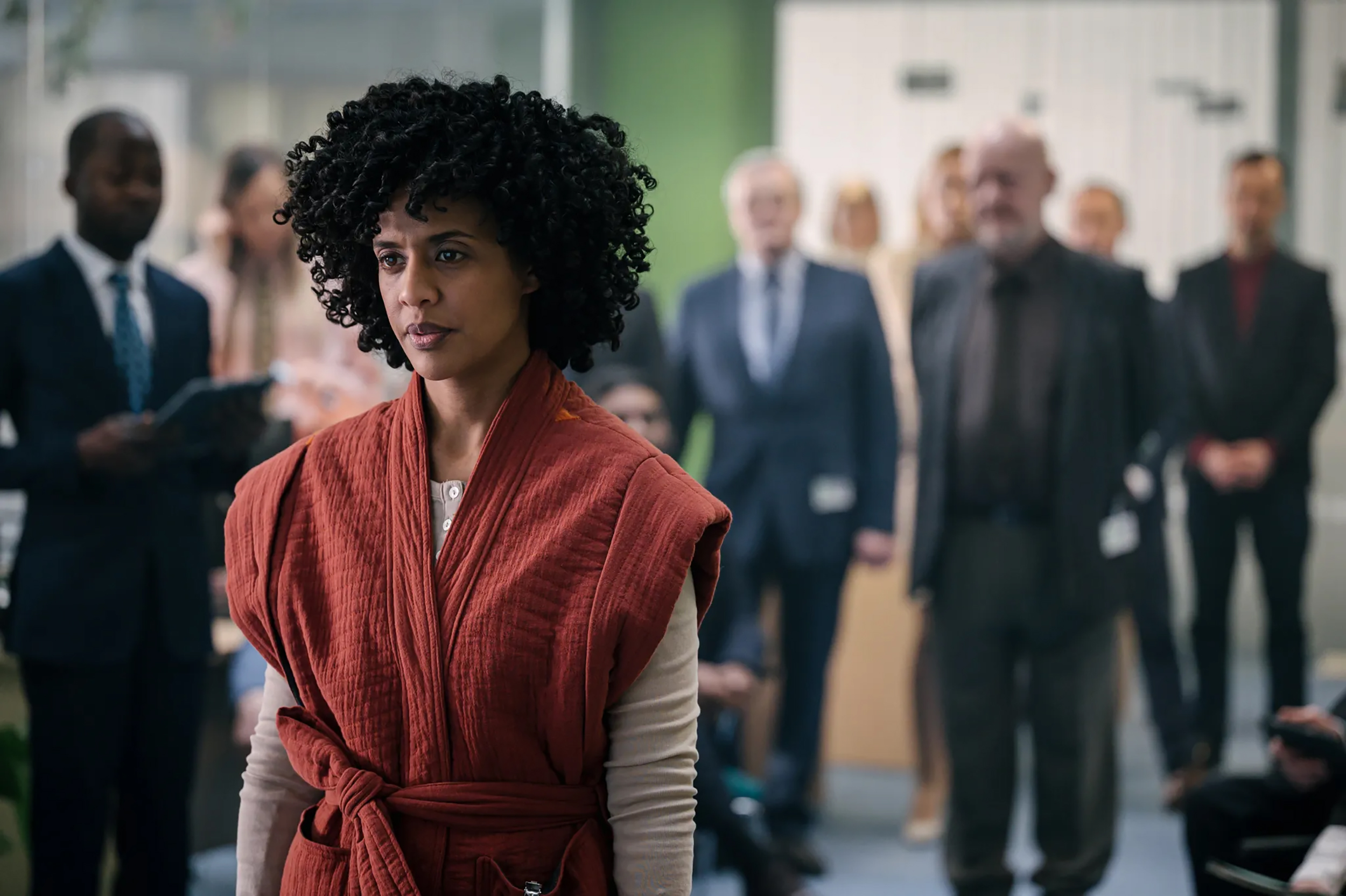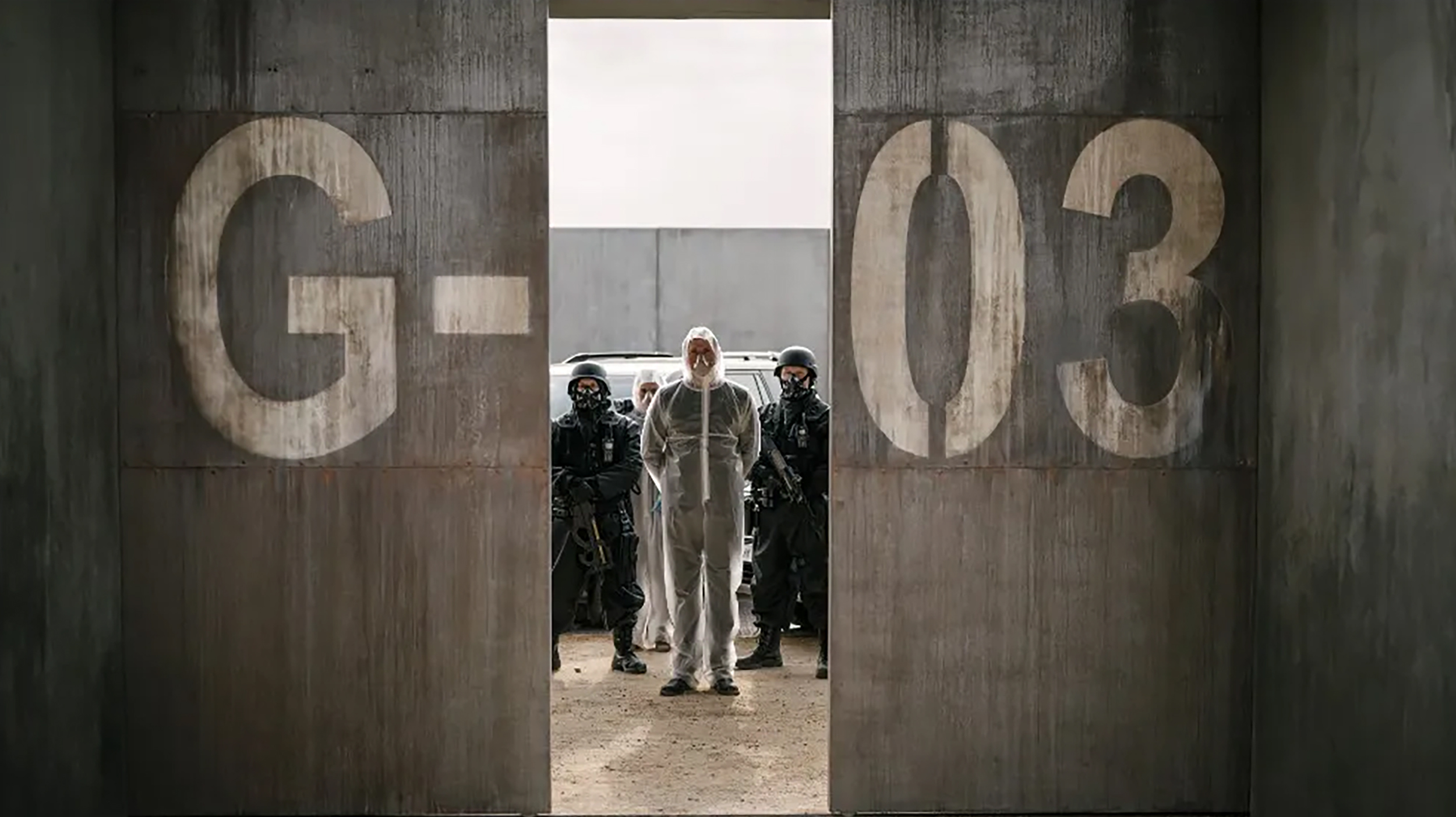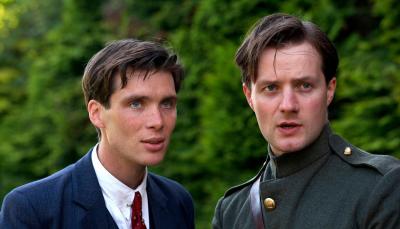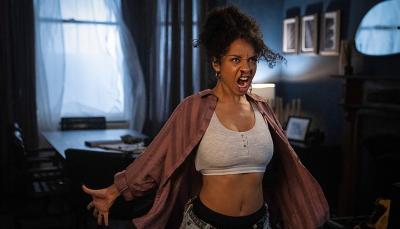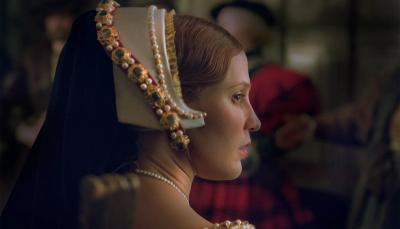'The Fortress' Is Entertaining Enough to Get Away With Being Too Soon
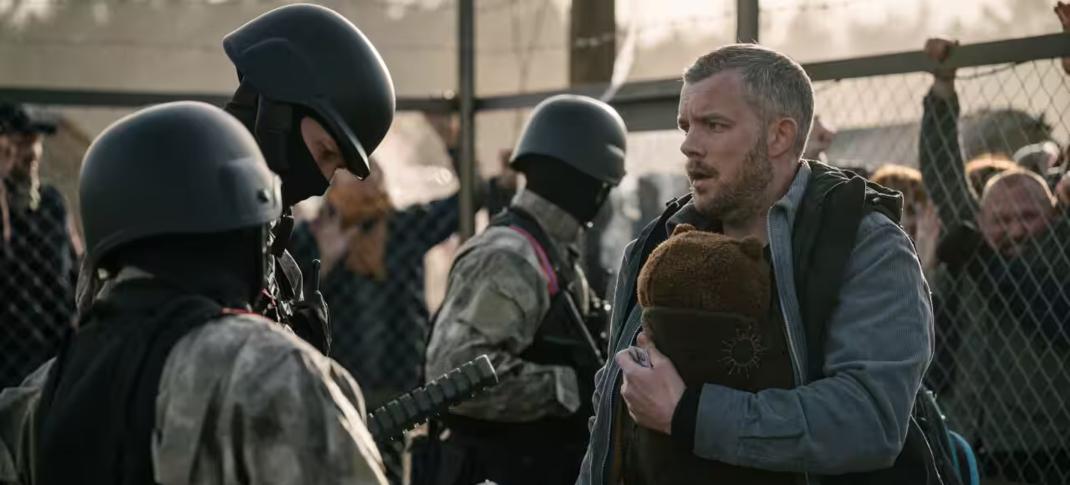
Russell Tovey as Charlie Oldman in 'The Fortress'
Lukas Salna/Maipo Film/Viaplay
Are we far enough away from the pandemic outbreak that countries can start making their own television dramas about nationwide responses to novel diseases? That’s what happens in The Fortress, a Norwegian thriller that’s somewhere between disease thriller and conspiracy drama, imagining a completely walled-off Norway in 2037, having gone through total border lockdown after a prior pandemic – only for the arrival of a British refugee (Russell Tovey) to coincide with a new, dangerous outbreak.
It can be dangerous to make a series directly responding to our era’s most recent crises and anxieties; however, global responses to COVID-19 became era-defining super-events so quickly that The Fortress is mostly forgiven for how abruptly and dramatically it exploits paranoia about bureaucracy and contagion. After all, every country made costly mistakes – intentionally or not – during the initial years of the pandemic. The most severe ones amounted to corruption, labor abuses, and sometimes deadly medical negligence. Imagining a more TV audience-friendly version of pandemic abuses when the more mundane but stomach-turning reality remains unchallenged could be tasteless to international viewers.
But The Fortress mainly gets a pass for its too-eagerly timely premise by being very entertaining. It cuts between people on every level of Norway’s powder keg of self-sufficiency but primarily circles around three perspectives – Esther Winter (Selome Emnetu), who leads the strategic planning for the Norwegian Food Safety Authority; Charlie Oldman (Tovey, who’s already been central to a futurist dystopian drama, Years and Years), a Brit refugee separated from his wife and child as he passes Norway’s borders into their dubious work program, and Ariel Mowinkel (Eili Harboe), an ambitious speechwriter who takes an opportunity to work for Norway’s Prime Minister (Tobias Santelmann).
Around halfway through the series, Esther and Charlie’s storylines converge as he spots foreign bacteria in a produce farm and becomes implicated in attempts to unveil and conceal the institutional secrets behind Norway’s isolationist project. The Fortress hits its stride in these plotlines – we get polar perspectives on the decision-making that constructed Norway’s fortress mentality. There are high stakes and punishing setbacks, and writers John Kåre Raake and Linn-Jeanethe Kyed balance these two arcs’ immediacy with the broader Contagion-lite story.
But this only extends to Esther and Charlie; Ariel remains passive for too much of the story, stuck witnessing the Prime Minister’s inner sanctum while having an affair with his right-hand woman. It’s worth tackling the politics baked into The Fortress’ narrative. Obviously, “building a wall” to keep the unwanted out is an inherently loaded concept, even if the much smaller size of Norway (population of 5.4 million) makes it more reminiscent of Australia’s border closure in 2020 than the outright xenophobic and fascist rallying call from the MAGA crowd.
Think of it in terms of recent apocalypse fiction like Station Eleven or The Last of Us, or more fittingly, The Kitchen, Netflix’s futurist take on London’s class strata. However, the country-specific distinctions of The Fortress’ border control are not exempt from troubling messaging, even if the series by no means endorses isolationism. A border is something conceptual that only exists to the extent that a state forcefully imposes it – as in, how a border is enforced reveals everything about the constructed ideology that imagined it. The Fortress wants to tap into the furtive, tightly-knit individualism that would run rife in a self-sufficient Western state with internalized fear of invading elements.
Sure, viral infections are scary, but the language and messaging about staying safe from infection can be easily co-opted to deploy against refugees and migrants. The scenes of Charlie’s family cooped up in the cramped refugee camp outside of Bergen feel uncomfortable for reasons other than the series intends – refugee camps aren’t just dehumanizing when they’re filled with white faces, after all.
On a political front, The Fortress veers between incisive and underbaked. It’s shrewd enough to recognize that isolated communities not using socialism will recreate right-wing structures on a smaller scale. But the ugliness of this future Norway goes unquestioned. Charlie gets separated from his wife because she’s more likely to suffer from motor neuron disease later in life. ALS is not transmissible but thought to be genetic – she is denied entry to Norway on health grounds, not because she will make anyone sick but rather for being a future burden on the state. It is textbook eugenic policy, a narrative choice particularly close to the bone for a Scandinavian production.
Details like these never really develop into a substantial critique of policy or ideology, and the final movements of The Fortress’ first season disappoint by setting up future seasons with guerilla resistance groups and smirking handovers of power to more ambitious and nefarious characters. When it delivers pacy and procedural thrills with a slightly embellished version of our present moment, The Fortress makes you sit up and pay attention — hopefully, a yet-unconfirmed second season has a fuller grasp on its troubling premise.
The Fortress is streaming on Viaplay, with all seven episodes available now.

